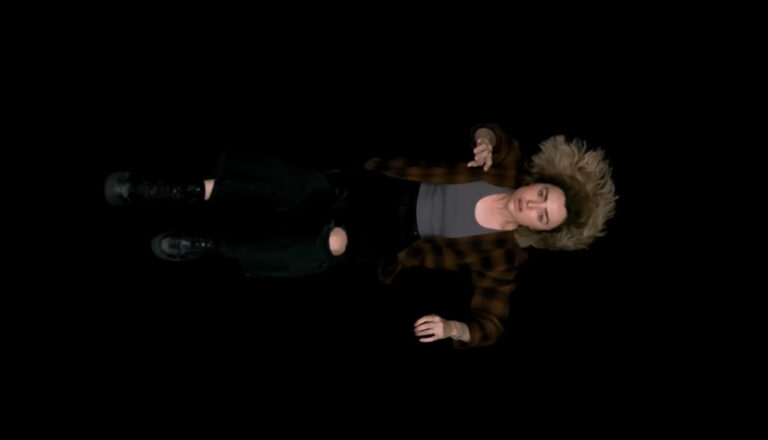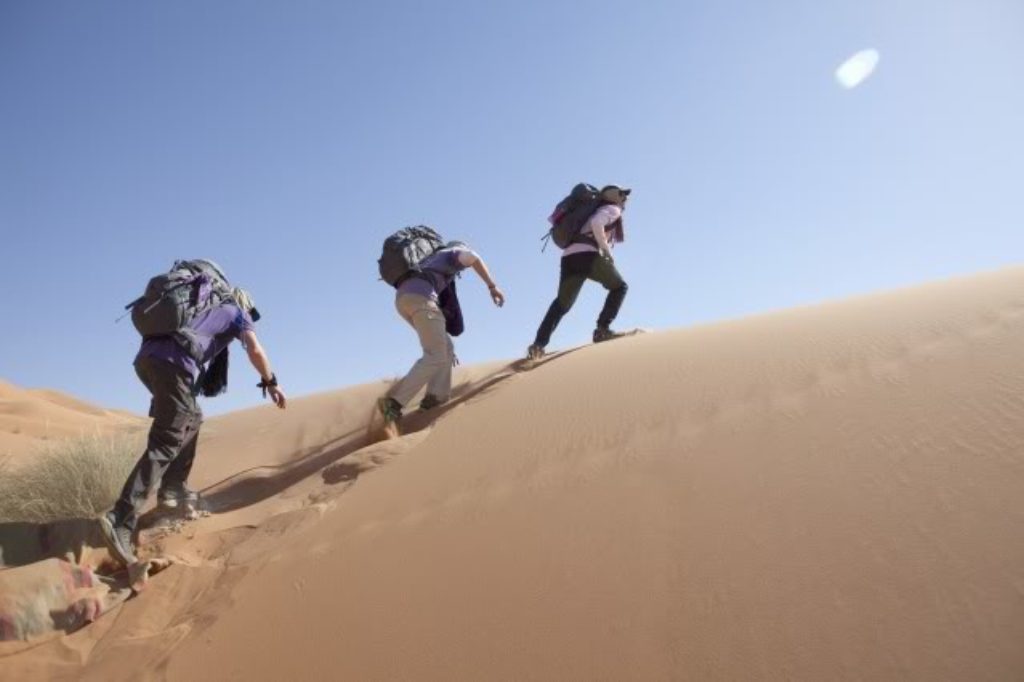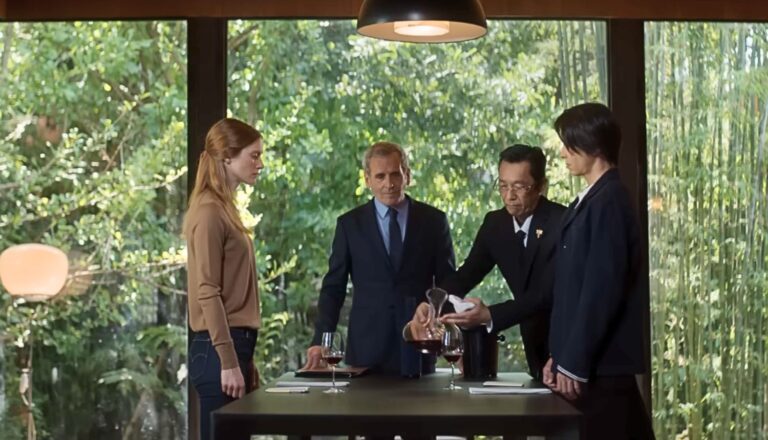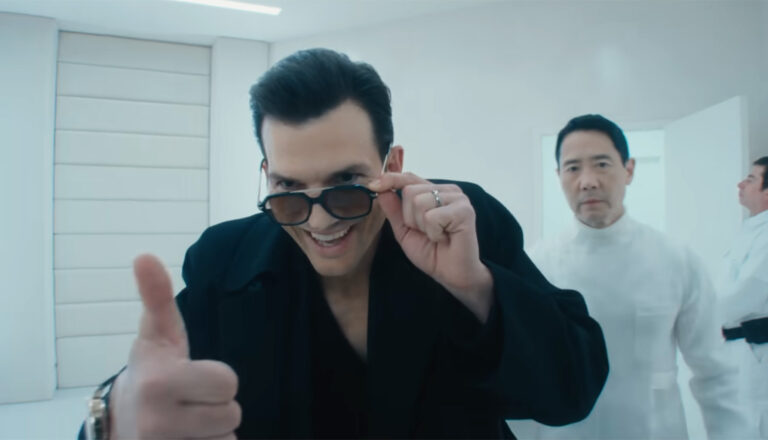
School Spirits
Don’t be fooled by the show’s teenage characters. Parents would be advised not to let their own teens be haunted by its content.

What if Survivor’s executive producer decided he wanted to make his own version of CBS’ perennially popular show The Amazing Race? Well, we don’t have to speculate anymore, because veteran reality television impresario Mark Burnett has done exactly that.
Except, he insists, his take on a competitive journey through an exotic locale isn’t really like The Amazing Race at all. Oh, sure, each episode involves two or three or four legs of a race across sometimes unforgiving terrain, with demanding physical challenges spliced in to level the playing field and to give competitors clues about where they’re supposed to go next—just like CBS’ show. But that, Burnett wants us to know, is where the similarities end. “There’s no taxis. There’s no hotels. This is very, very different,” he told The Hollywood Reporter. “Here, you actually need to put yourself on the line, really be willing to cross the deserts and the mountains and use the camels and the horses. So it’s a very, very much more difficult competition.”
Specifically, the debut season’s competition involves the deserts and mountains and camels and horses of Morocco. Each episode, teams of three ford raging rivers, scale dunes in the sweltering Sahara and traverse snow-capped mountains. AJ Gibson, a member the a team dubbed Fab 3, reflects on the journey this way: “We knew this was going to be hard. I mean, the word Impossible is in the title. But I couldn’t imagine this. It’s just miserable.”
As with The Amazing Race, the last team to check in at the end of the episode is eliminated—or evacuated, as they say on Expedition Impossible. The reward for each member of the last team standing? A Ford Explorer and $50,000. (The vehicle often makes commercial-like product-placement appearances.)
For all of Burnett’s protestation, then, that his new show is really different from The Amazing Race, its basic premise seems pretty familiar, right down to the irrepressibly chipper host, wildlife reality TV veteran Dave Salmoni. And equally recognizable are the frequent eruptions of frustration we see as the competitors are stretched to the breaking point. Also just like The Amazing Race, we’re presented with a team whose members make a point of pointing out their sexual orientations. And censored profanities mingle with frequent exclamations of “oh my god!”
On the other end of the spectrum, the same competitors who quarrel and swear often manage to tap into reserves of stamina and determination that they didn’t even know that they had as they battle injury, exhaustion, attitude, altitude, searing heat and bone-chilling cold. That’s inspiring, to say the least.
“I think when you’re at your worst,” AJ says, “when you’re at your absolute lowest, is when you have the most potential to rise above it and to find something new about yourself. … And as long as we don’t give up on each other or give up on ourselves, I think we’ll be OK.”
(Editor’s Note: Plugged In is rarely able to watch every episode of a given series for review. As such, there’s always a chance that you might see a problem that we didn’t. If you notice content that you feel should be included in our review, send us an email at letters@pluggedin.com, or contact us via Facebook or Instagram, and be sure to let us know the episode number, title and season so that we can check it out.)
Contestants trudge up a snowy 10,600-foot mountain peak, then hike down into a sweltering valley. No Limits member Jeff Evans coaches Erik Weihenmayer, who’s blind, on where to place each step. And when a woman on the California Girls team struggles to complete a challenge atop the mountain, a member of the New York Firemen helps her finish. “No way I could have left her,” he says.
The members of Team Kansas (a group of three sisters, one of whom is the youngest competitor at age 18) are determined to “go home with our heads held high” after they’re eliminated. “I never thought I would do any of this,” one of them says, “and I kind of realized I had more potential than I thought.” Host Dave Salmoni sums things up when he says, “It’s not about how you finish, it’s about the journey.” And people say “thank God” after obstacles are overcome, with one person exclaiming, “Praise God.”
Unfortunately, God’s name is used in vain quite often as well. Other blurted-out phrases include “kick a‑‑.” Censors fully bleep at least 10 harsher profanities. Someone battling a stomach bug announces, “I’d rather be throwing up right now.”

After serving as an associate editor at NavPress’ Discipleship Journal and consulting editor for Current Thoughts and Trends, Adam now oversees the editing and publishing of Plugged In’s reviews as the site’s director. He and his wife, Jennifer, have three children. In their free time, the Holzes enjoy playing games, a variety of musical instruments, swimming and … watching movies.

Don’t be fooled by the show’s teenage characters. Parents would be advised not to let their own teens be haunted by its content.

‘Drops of God’ focuses on a wine-centric competition, and it comes with notes of sexual content and some crude language, too.

Apple TV+ welcomes preschoolers to Yo Gabba GabbaLand—though parents may want to note the show’s references to magic.

FX’s ‘The Beauty’ will certainly make its viewers think about beauty and vanity, but so many ghastly content concerns make this an ugly show.